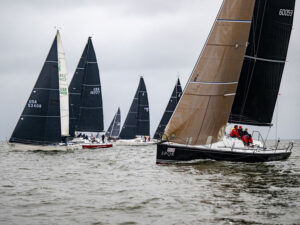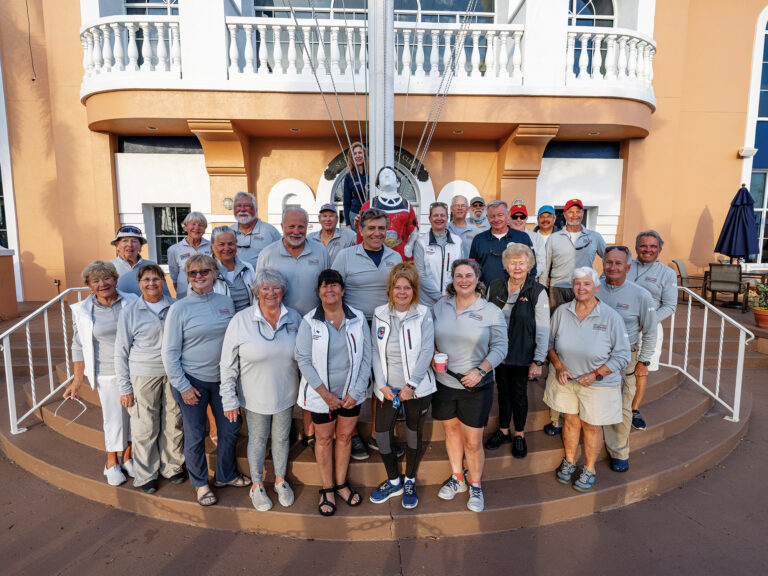
DekkerA
Okay, maybe I should have learned my lesson with the last one. “All Is Lost,” despite rave reviews from film critics (who turn out to know nothing about sailing), did not turn out to be a movie that sailors “could truly love.” Instead, it turned out to be a movie that required serial and epic suspension of (sailing knowledge-generated) disbelief. Whether it was the apparently motorized shipping container, the apparently motorized lifeboat, the inexplicable lack of an EPIRB, the preference for shaving over storm preparation (go here for an excellent and devastating list), All Is Lost turned out to be a movie sailors could truly hate. Hell, it didn’t even get Robert Redford his expected Academy Award nomination (I didn’t realize there might be an Oscar for grunting, grimacing, staring into space, and making stupid decisions).
So after that spectacular #FAIL, as my kids like to say (frequently), I should probably get out of the sailing film prognostication business. But I am always so hopeful, scanning the horizon in search of a sailing film that might really be good. So sue me (I mean that figuratively, of course) because the next great filmic prospect to catch my attention is drawing nigh. It’s called MAIDENTRIP, and it’s a documentary that chronicles the sublime and spirited circumnavigation of young Laura Dekker (which I wrote about here).
If you are not familiar with Dekker’s story of youthful ambition and escape, you can review it here. It’s a great story, which of course is the first requirement of a good film. Director Jillian Schlesinger talks here about how she came to make the film, and how she went about it. It wasn’t easy, Schlesinger notes:
“Most of the creative and logistical challenges were really exciting, like the challenge making a film about something unfolding as it’s being documented and happening largely outside of your presence and outside of your control. It required a lot of trust—trust in Laura, in other collaborators, in the universe.”
In fact, while Schlesinger and her film crew could turn up whenever Dekker touched terra firma, the most critical moments–when the sea is vast and the emotions run high–were filmed when Dekker was alone. So in a very real sense, Dekker made this film. She chose when to turn the camera on, when to turn it off. What to say, what not to say. What to share, what to keep tight within herself. And to the extent that the film is a reflection of Dekker’s personality, it will be a film that draws the viewer into the world of a preternaturally mature teenager who somehow realized the importance of seeking meaning and adventure in life while still young, instead of burning out on the material world and then going in search of distant horizons on creaky knees and diminished physical capacity.
Dekker set off with such determination, with such a profound belief in what she was meant to doing on this planet, and a total lack of ego (cough, cough, Abby Sunderland), that it’s hard not to find her story both charming and inspirational. If the film manages to convey any her ideals and her refreshing counter-conventional take on what matters in life, it’ll be worth seeing (and I’ll certainly plan to take my kids; screening schedule here).
This time I have confidence that the sailing elements of the film will both be correct and familiar. After all, Dekker got around the world’s oceans with aplomb and style (though apparently she’s not totally happy with the film). We all yearn (some more often than others) to cast off our mooring lines and set out into the unknown, immersing ourselves in the physical forces of nature, and leaving the stresses and demands of the artificial human world behind. Make a film about someone doing that in a sailboat, especially a charismatic teen who is wise way beyond her years, and that’s a film I will love. I think. I hope.
If not, I guess I’ll have to go out and make my own damn sailing movie.









